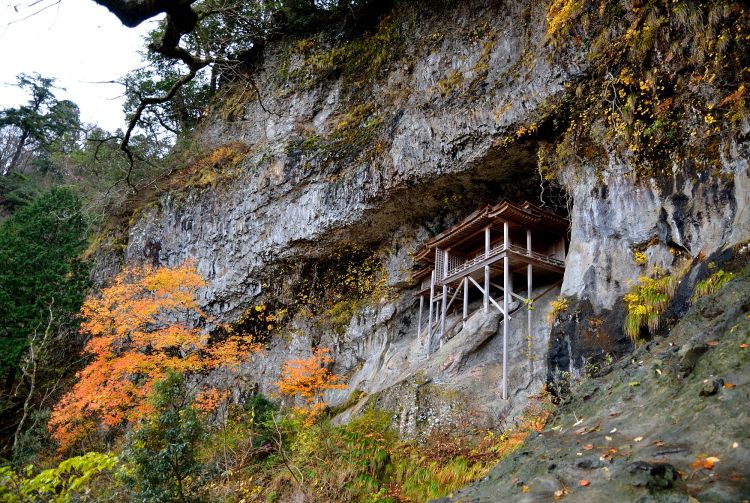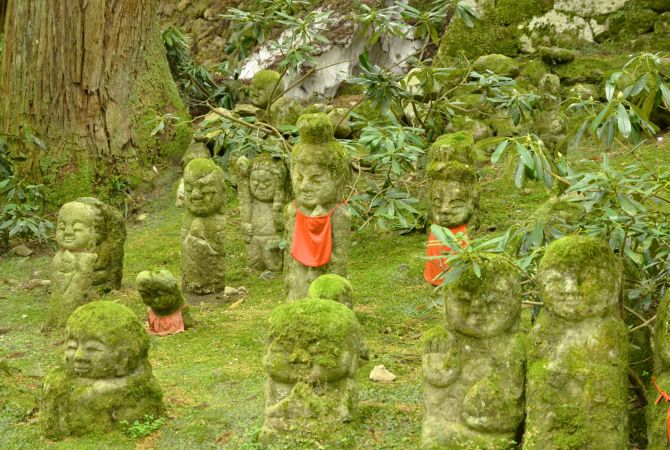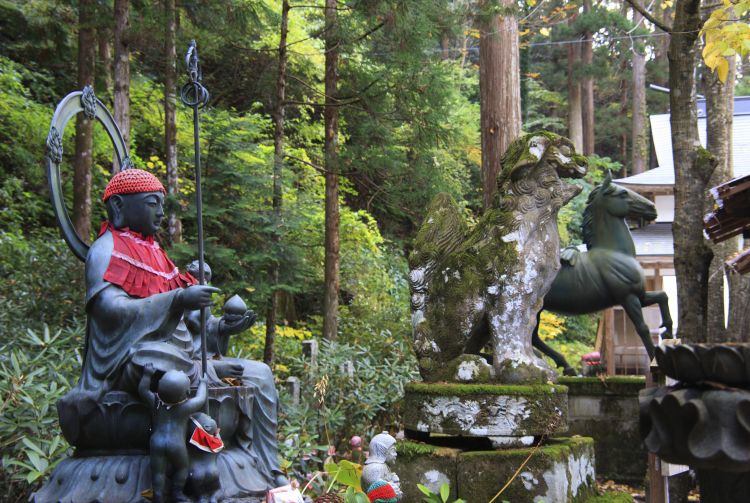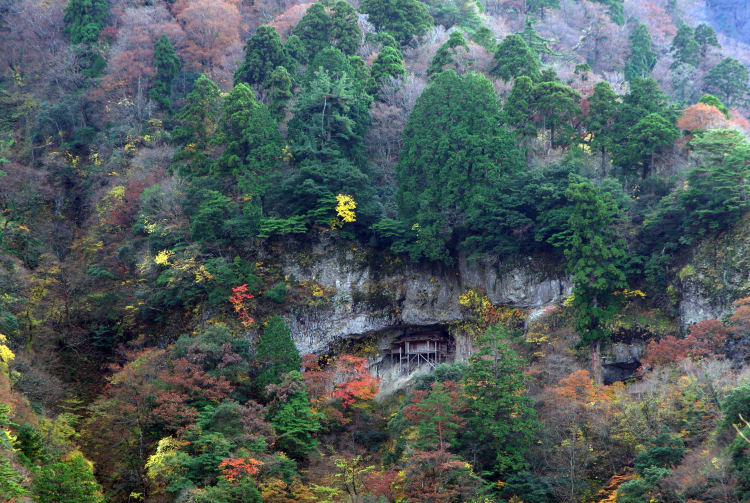A sacred mountain and temple complex with a history of more than 1,300 years
Mt. Mitoku is the jewel in Tottori's mountainous crown. One of three sacred mountain asceticism sites in Japan, Mt. Mitoku is an important pilgrimage spot for travelers. Renowned for its breathtaking views, the short but challenging hiking course to the uppermost temple of the Sanbutsuji Temple complex is an adventurer's dream.

Don't Miss
- Take off your shoes and enjoy views from the veranda of Monjudo Temple
- Ring the two-ton bell to announce your presence to the mountain gods
How to Get There
Use a combination of train and bus, or plane, train and bus travel options to reach Mt. Mitoku.
The closest transport point to Mt. Mitoku is Kurayoshi Station on the JR West Sanin Main Line. From the station, take a bus from Bus Stop No. 3. Your journey should take around 40 minutes.
From Tokyo by plane, flights run from Haneda Airport to Tottori Airport. You can then get a bus to JR Kurayoshi Station. The bus trip takes about an hour.
If traveling by train from Tokyo, take a bullet train to JR Kyoto Station. Take the Super-Hakuto Express to Kurayoshi Station.
From Osaka, take the Super-Hakuto Express from JR Shin-Osaka Station to Kurayoshi Station.
Quick Facts
Whether you can climb or not depends on the weather—you cannot climb to the upper temples after snowfall
Parts of the mountain cannot be climbed alone; if traveling by yourself, ask fellow hikers for permission to join them
Mitoku means the three primary virtues of Buddhism: wisdom, renunciation and judgment
A pilgrimage to Mt. Mitoku is said to purify your six roots of perception: eyes, ears, nose, tongue, body and mind
The climb to Nageiredo
The priests of Sanbutsuji Temple proudly refer to the Nageiredo Temple as “Japan's most dangerous National Treasure.” The temple itself is not dangerous, but the hiking path to it is somewhat precarious. Having said that, the ascent and descent to the uppermost temple is almost always completed without incident.
The inherent dangerous nature of the pilgrimage is an essential component of a visit to Mt. Mitoku. It is believed that by embarking on a hazardous journey your senses will be honed and improved. This training is called the “Way of the Ascetics.”


Where it pays to be prepared
From the parking areas and bus stop, first ascend a steep set of stone stairs to the lower temples of the complex. A small fee is required to reach the beginning of the hiking trail.
After further stairs find Sanbutsji Temple and an offer of free tea. Behind the temple is the beginning of the hiking trail where you must register and pay a fee to continue. If the tread of your shoes is deemed insufficient, purchase waraji sandals to complete your journey. Cotton gloves to protect your hands are optional.
You will be given a ceremonial sash to wear during your climb.
Outstanding views across a lush valley await
Enter through a gate and over a small bridge, Yadoiribashi, the entry point to the sacred mountain. Roots and lianas decorate the steep climb to the top of the ridge. The path now levels out somewhat until you reach an angled rock-face on which the Monjudo Temple rests. A series of chains lead to the temple.
Travelers take off their shoes and walk around the temple veranda for stunning views of the lush valley below. On a clear day, see the lower slopes of Mt. Daisen and even across the Sea of Japan to the Oki Islands in neighboring Shimane Prefecture .

A one-of-a-kind architectural treasure
The path continues along steep ridges and through bamboo groves until you turn the final corner. You'll then see Nageiredo Temple at the entrance of a cave.

Fortune telling and flowers
In the late seventh century, the Japanese mystic En no Gyoja was said to have thrown three petals of a lotus into the air saying that they "should fly down to places related to gods and Buddha." One landed at Yoshino in Nara Prefecture , one at Ishizuchiyama in Ehime Prefecture , and one at Mt. Mitoku.


























































